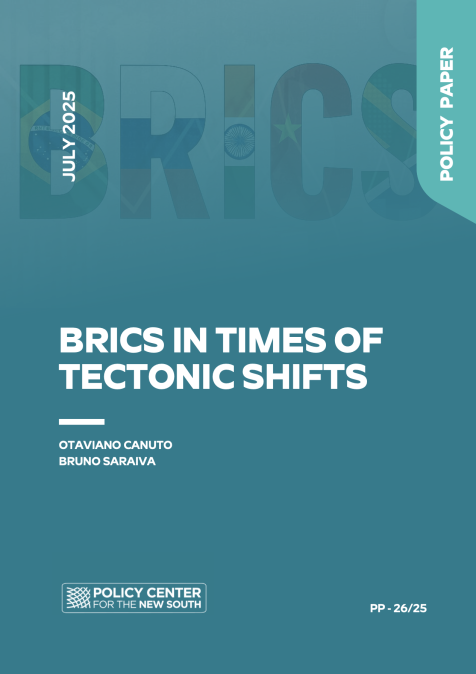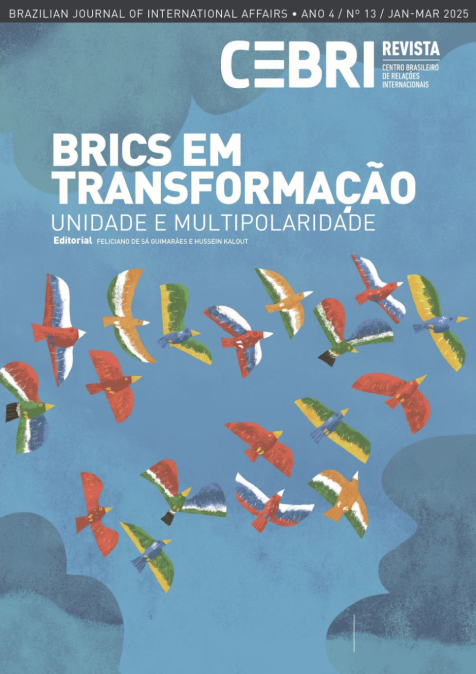Publications /
Opinion
Next week, the 2019 Spring Meeting of the International Monetary Fund (IMF) and the World Bank will take place in Washington, in this 75th year since the birth of the two institutions. Christine Lagarde, the IMF's managing director, speaking on Tuesday at the US Chamber of Commerce, offered an appetizer about the macroeconomic projections to be released.
Last January, the IMF reduced its forecast of global economic growth to 3.5 percent in 2019 and 2020, lower rates as compared to the ones released in October. By referring to a "loss of momentum" in her speech, Madame Lagarde indicated a further drop in the numbers to come next week. While, according to her, two years ago 75% of the global economy was increasing its rate of expansion, now 70% would be moving in the opposite direction.
On the other hand, Lagarde anticipated that no recession is expected in the near term, and a possible resumption of pace in the second half may be possible. Over the last few weeks much has been discussed whether the recent reversal in the US yield curve - 10-year interest rates fell below the 3-month rates during the period from March 22 to 28 - would indicate a recession ahead. The IMF's projections, it seems, will not corroborate such sentiment, although pointing to slowing growth.
Madame Lagarde attributed the decline in global growth to rising trade tensions and the tightening of financial conditions in the second half of last year. With the reorientation in the US monetary policy announced by the Federal Reserve Bank, financial conditions smoothed in the first quarter. The Fed indicated more "patience" in normalizing its monetary policy, joining other major central banks.
In China, in turn, the pace of financial deleveraging and growth slowdown has been softer than feared. However, Lagarde called the current moment of the global economy as "delicate", referring to the scenario of revitalization in the second half as "precarious" due to the presence of high impact risks.
Among these risks, Lagarde highlighted the intensification of trade wars. One of the already released chapters of the World Economic Outlook to be discussed at next week's meeting brings a simulation showing that if tariffs on all goods traded between the US and China were increased by 25%, the damage on annual GDPs of the two countries would be around 0.6% in the former and 1.5% in the latter. "Nobody wins a trade war," said the IMF's managing director.
Lagarde also mentioned risks associated with particular countries - such as the possibility of a disorderly Brexit - and high levels of debt in some countries and sectors. Any negative surprises about economic growth or factors that might induce central banks to tighten financial conditions may have their effects aggravated by the vulnerability of such indebted sectors and countries.
The debt of US non-financial corporations is a case in point - as highlighted in an OECD report released in February and last month by the president of the Federal Reserve of Dallas, Robert Kaplan. The amount of debt securities issued by such companies has steadily increased from $ 2.2 trillion in 2008 to $ 5.7 trillion at the end of last year. As a proportion of GDP, it reached 47% and surpassed the peak prior to the global financial crisis.
It is worth noting that the largest share of these issues occurred with a BBB rating, the first notch above "speculative grade", thus making them liable of being acquired by institutional investors legally bound to apply only in "investment grade" bonds. Any risk reassessment throwing down such securities, however, would generate a massive wave of liquidations. The average quality of the pile up of bonds has been declining over time.
In addition, there has also been a substantial increase in syndicated leveraged loans, with features in common with those with mortgages that were underneath the bubbles that culminated in the 2007-08 financial crisis. The long period of unconventional monetary policy since the crisis has had the indebtedness of nonfinancial companies as one of its unfolding, while households and banks de-leveraged.
There are, on the other hand, factors that mitigate the probability of some catastrophe, at least as long as interest rates remain low. During the expansion of recent years, fixed investment spending by US companies has remained below profits and many companies have strong cash reserves. In part, debt issuance was for share repurchases and, in this case, the result of planned balance sheet restructurings rather than cash requirements. Profit margins have declined recently but remain high. Finally, the size of the leveraged loan market and its derivatives does not match their predecessors - one-tenth of total nonfinancial corporate debt in advanced economies, according to Gavyn Davies in the Financial Times. However, as Robert Kaplan acknowledged, nonfinancial corporate debt was among the reasons for the Fed's interest rate pause and "patience."
Returning to Madame Lagarde, one must recognize the moment in the global economy as “delicate” and the relevance of avoiding policy errors, especially deepening trade wars. A sure bet is the one that forecasts for advanced economies will come with slower growth than in January, even if with the slowdown alleviated by loose monetary policies. While recent indicators have pointed to slimming growth in the eurozone, the tide of the macroeconomic cycle in the U.S. is clearly pointing downward. To be seen then how resilient the growth recovery in Latin America and the Caribbean, Sub-Sahara Africa and ex-China emerging Asia will look.
Prepared for "Asian Investment in Brazil: Opportunities, Challenges and Different Perspectives", Washington, D.C., April 5, 2019










